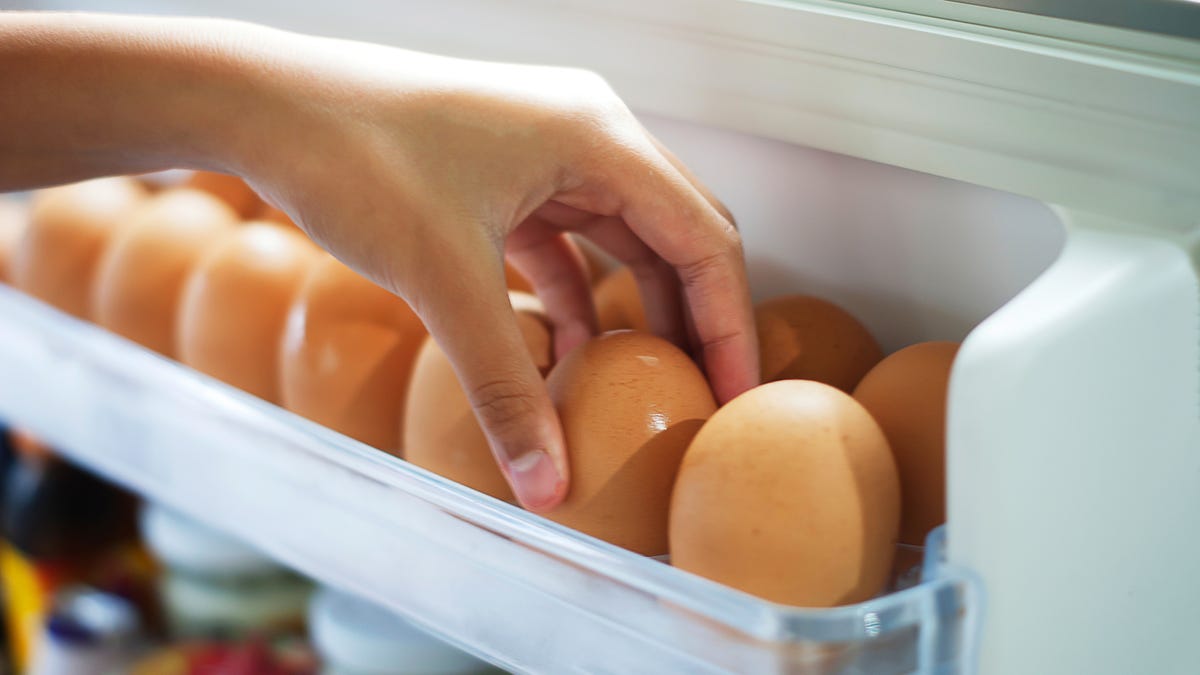Eggs only tend to be a simple product, but in fact, hard to store. In the USA, they keep it in the refrigerator; they don't bother some European countries. Let us find out how to store eggs properly.
Why eggs are dangerous
The main health hazard is not the eggs themselves, but the salmonella bacteria. They live in the intestines of many warm-blooded animals. There they behave peacefully, but when they get into the food, they become dangerous to humans.
Salmonella causes serious diseases - typhoid and salmonellosis and the main symptoms are nausea, vomiting, and diarrhea. They can be deadly for the elderly, young children, and anyone with a weakened immune system or severe chronic illness.
Read also: Who Should Eat Flax Seeds And Why?
Salmonella ends up on the table with poorly washed vegetables, meat, and eggs. In Russia alone, up to 50,000 people fall ill with salmonellosis a year.
For safety, food that goes to stores (and these stores themselves) is constantly checked by sanitary services, but it will still not be possible to protect against bacteria completely.
At 4 ° C, the growth of Salmonella stops, and if the egg is heated to 71 ° C, all bacteria will die.
For example, eggs can contain bacteria on the outside if they get on the shell, and if the inside of the chicken was infected, and Salmonella entered the egg before the shell formed. Infection risk is conditional on how these eggs were stored and cooked. Salmonella, although they acquire resistance to different drugs, are still more or less the same everywhere. But the question of where to store eggs depends on how they deal with them in the country.
Why do Americans keep eggs in the refrigerator?
In the USA, Salmonella is destroyed externally - eggs are cleaned before they are sold. They are washed in hot water, treated with a disinfectant solution. They do about the same in Japan, Australia, and the Scandinavian countries.
Salmonella is removed from the shell, but such washing does not solve internal bacteria's egg problem. Also, the cleaning process destroys the thin protective film that covers the eggs. Because of this, bacteria that the egg encounters after washing can easily penetrate the shell.
Salmonella do not die in the refrigerator, but they do not multiply either.
Therefore, the eggs processed outside are stored in the refrigerator at a temperature not exceeding 7° C. Everything that went into the refrigerator should not heat up anymore. This is important; if such clean eggs have been dragged out into the heat several times, then washing may be wasted.

Why are they not putting eggs in the refrigerator in Europe?
In no way does this imply that there is no salmonellosis in Europe, but eggs are not specially processed. You bet on vaccination and a sanitary environment. It is impossible to wash eggs in most EU countries not to destroy the natural barriers to infection, which maintain food freshness for up to three weeks. But the refrigerator is optional. Of course, eggs cannot be stored at high temperatures, they must be refrigerated, but the temperature should not be zero.
Also read: 5 Reasons To Eat More Vitamin C Foods
| Type of eggs | Storage temperature | Storage period |
| Diet | from 0 to 20 ° С | 7 days |
| Canteens | from 0 to 2 ° C | no more than 120 days |
| not higher than 20 ° С | 25 days |
How to store eggs in the refrigerator
As it is already clear from sanitary standards, eggs cannot be stored for very long. The refrigerator inhibits the growth of bacteria and extends the shelf life, but when storing eggs, you need to consider the following.
- Eggs absorb odors. For example, they start to smell like onions or fish. To prevent this from happening, store eggs in closed containers (or it is better to cover food that smells strong).
- Eggs must not be placed on the door. It is important not just to put eggs in the refrigerator - they need a special but also to prefer near the back wall. Because on the door, constant temperature drops destroy the shell protection and provoke the growth of bacteria
- Cold eggs are not good for baking. If you send eggs to cake or pies, you must first warm them up to room temperature.
You don't have to put eggs in the refrigerator if you're planning to use them quickly. It is enough to store it in a cool place in the room and wash it right before cooking.
Adapted and translated by The Cop Cart Staff
Sources: Life hacker







